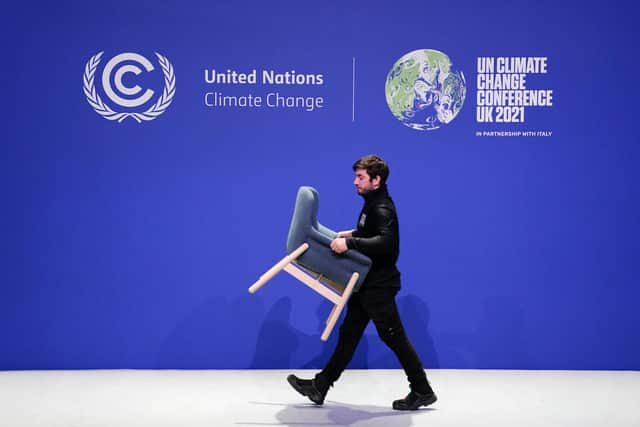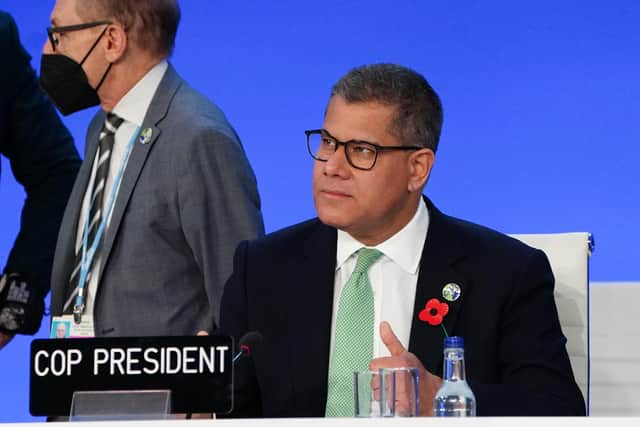There may have not been a clear winner at COP26, but Glasgow was a loser - Stephen McIlkenny
COP26 President Alok Sharma fought back tears as he apologised to delegates after the wording of the Glasgow climate pact was changed when China and India objected on a commitment to “phase out” coal.
Sadly for those that have followed climate summits such as the 2015 Paris Agreement, it was to be expected.
Advertisement
Hide AdAdvertisement
Hide AdThe lack of legally binding deals and the majority of countries not having fixed targets means that for all the bluster before COP26, nations can effectively “do a Donald” and opt out of climate targets as and when they see fit, much like the 45th US President did officially in 2020.


While island nations and others drastically impacted by the impact of climate change will undoubtedly be the long-term losers of the UN climate summit, in the immediate aftermath it felt like there was one more to add to the list. The city of Glasgow itself.
Inscribed in the Glasgow coat of arms is the phrase ‘Let Glasgow Flourish’ – and whilst looking to the future, perhaps organisers should have also noted the city’s history and taken said mantra on board.
Ask yourself this, did it really feel like a Glasgow event?


The summit seemed to hold back core Scottish values due to bureaucracy around the event and political point scoring and one-upmanship across the board. Indeed, if you had followed the summit online or dipped into TV coverage, it could have been anywhere in the world.
Little was made about the hospitality of the city and it is unlikely that a tourism boost will come from COP, with the event hardly showcasing Glasgow at all.
And if you need any more convincing about the impact of COP26, look no further than our own Prime Minister.
The summit had such an impact on the Prime Minister that he couldn’t even remember the name of the host city a day after the summit had finished. Talk about putting Glasgow on the map.
